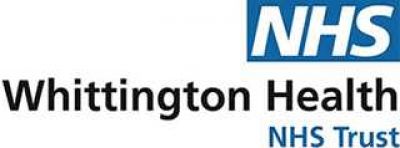-
Topics
- All Topics
- Self Care
- Blood & Skin
- Cancer
- Cardiovascular & Respiratory
-
Children & Family
- Child Emotional Wellbeing & Mental Health
- Children, Young People & Family
- Domestic Violence & Abuse
- Female Genital Mutilation
- Gender Identity Adults
- Homelessness
- Learning Disabilities
- Migrant Health
- Neurodiversity
- Safeguarding Adults
- Safeguarding Children
- Sexual Health
- Social Prescribing
- Speech & Language Therapy
- Diabetes & Endocrine
- Diagnostics & Investigations
- Frailty & Complex Care
- Gastroenterology, Colorectal, Renal & Urology
- Head, Neck & Eyes
- Infectious Diseases
- Mental Health
- MSK
- Neurology & Neurosurgery
- Nutrition & Weight Management
- Obstetrics & Gynaecology
- Social Care & Safeguarding
- Urgent & Emergency
- Clinical Pathways
-
Medicines
- Community Pharmacy
- Controlled Drugs
- Electronic Prescription Service
- Infections & Antimicrobials
- Medicines Compliance
- Medicines Optimisation Prescribing Policies
- Medicines Optimisation Team
- Medicines Supply Issues
- Patient Group Directions
- Prescribing Guidelines
- Prescribing Quality Scheme
- Prescribing Recommendations
- Self-Care Medicines Scheme
- Shared Care
- Fact Sheets
-
Practice Management
- Cancer Care Resources
- Deadlines
- Enhanced Services
- General Practice Change Management Support
- General Practice Staff Survey
- Greener NCL: Sustainable General Practice
- Hospital Bypass Contacts
- Immunisations & Vaccinations
- Interface Consensus
- Practice Vacancies
- Referral Support
- Research Opportunities
- Submit a Patient Safety Incident Report
- Submit a Quality Alert
- Support for Staff
- Education
- Digital
Breast Pain Clinics
NCL WideProvided By


Breast pain alone is not a symptom of cancer (NICE guidelines NG12, 2015) and patients don't need to be automatically referred on an urgent suspected cancer (USC) pathway. Breast pain clinics support these patients.
Breast pain clinics provide patients with a consultation and physical assessment. Patients will be given advice and information on symptom management.
Patients with any breast abnormalities will be upgraded to a suspected breast cancer pathway.
To manage at risk patients, complete a breast family history risk assessment, and make an onward referral if required.
Eligibility Criteria
Inclusions
- aged 16+
- breast pain
- no other breast and axilla related signs or symptoms (such as lumps, nipple discharge)
Exclusions
- any clinical signs requiring a referral to an urgent suspected cancer breast clinic
- past personal medical history of breast cancer
- patient has implants
- male patients
- pregnant patients
How to Refer
EMIS form
Referral methods: e-RS
Referrals should made using the Breast Pain proforma NCL referral form.
How to find service on e-RS
- Specialty: 2WW
- Clinic type: 2WW Breast
- Services:
- Breast Pain Symptomatic – Edgware Community Hospital
- Breast Pain Symptomatic – Finchley Memorial Hospital
- Breast Pain Symptomatic – James Wigg Group Practice
- Suspected Cancer: Breast Pain Triage Clinic, Whittington Health
Where to find the form
- NCL Global Documents > Urgent Suspected Cancer (formerly 2WW)
Locations
Bounds Green Health Centre (Whittington Health)
Edgware Community Hospital
Finchley Memorial Hospital
James Wigg Practice
Service Feedback
Raten Davies (for RFL) ratendavies@nhs.net or for WH whh-tr.breastpainclinic@nhs.net
see aboveRelated Topics View All
Urgent Suspected Cancer
Information about urgent referrals previously called the two week wait (2WW) pathwayCancer Screening
National screening that supports detection of cancerReview date: Monday, 28 September 2026
